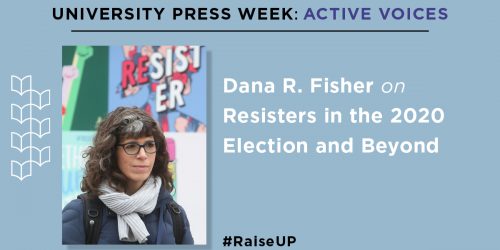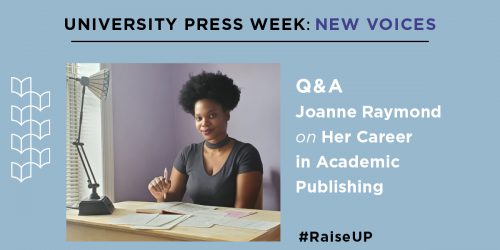University Press Roundup

Welcome to our weekly roundup of the best articles from the blogs of academic publishers! As always, if you particularly enjoy something or think that we missed an important post, please let us know in the comments. (And look back at our University Press Roundup Manifesto to see why we do this post every Friday.)
Recently, University of California Press’s blog interviewed Arlene Dàvila, author of El Mall: The Spatial and Class Politics of Shopping Malls in Latin America. For this new book, which analyzes the financialization of the developing world, Dàvila studied how shopping malls are seen from the perspective of investors. For these participants in the changing economic and social makeup of Latin America, shopping malls are considered investments and “management concepts” that sell brands and experiences rather than products.
This week, Harvard University Press’s blog shared a few excerpts from the new book Finding Time: The Economics of Work-Life Conflict, which highlights struggles in maintaining a work-life balance in America and what that means for families today. The author, Heather Boushey, focuses on making people consider work-family policy as a serious economic issue by considering what it would look like if we sought to alleviate family economic insecurity. Boushey encourages people to think about how keeping people fully employed while they care for their children benefits individual families as well as the general economy.
As part of the centennial anniversary of the National Parks Service, Johns Hopkins University Press’ blog shared a post which questions: are national parks for people or for animals? Parks are very popular among people, but high volumes of tourists and nature-lovers can negatively impact the natural environment by damaging animal habitats and the normal patters of animal life. Previous research has demonstrated that wildlife will run away from people using nature trails, however the long term effects of human presence in the wilderness are unknown. This has led to a new project testing the effect of nature trails on wilderness, to see if a true human-animal balance can be achieved.
Zika is here to stay, says Dr. Alan Lockwood, emeritus professor of neurology at the University at Buffalo, Buffalo, NY and a senior scientist at Physicians for Social Responsibility, Washington DC. He is also the author of the forthcoming book Heat Advisory, to be published by MIT Press, which draws a correlation between climate change and public health. According to Lockwood, an increase in temperatures and rainfall will result in a heightened number of mosquitoes that carry the Zika virus, which will spread the virus and increase the risk of transmission. Zika, which was originally confined in the tropical regions in Africa and Asia, has spread across the Pacific Ocean to the Americas, where it has reached epidemic levels particularly in Brazil, where a large number of children were born with microcephaly to women who had been infected by the Zika virus.
A new post on New York University’s From The Square blog highlights the growing trend of Korean immigrants who have returned to South Korea to tour their home country, reunite with birth families, and to live permanently. Since the 1950s, over 200,000 Korean children have been adopted by families in Western nations. Given this amount of time, Korean adoptees are from multiple generations, young adults to older adults, many of whom have founded organizations which provide resources for members of the Korean diaspora. Written by Catherine Ceniza Choy, author of Global Families: A History of Asian International Adoption in America, this post looks at this recent trend and questions what impacts this movement has had on Korea.
This week, Stanford University Press’ blog shared a post about the unconscious racism in sociology. Just as it failed to predict the civil rights movement of the 1950s and 1960s, sociology was unprepared for the racial conflict that led to the Black Lives Matter movement. Dominant views in the field held that the U.S. had made “great strides in race relations,” such as was highlighted by the “election of the first black president in 2008.” However, according to Aldon Morris, who recently wrote the book The Scholar Denied, sociologists have unconsciously practiced a white sociology by ignoring important contributions of black sociologists and therefore providing justification for racial hierarchy. The blot post argues that these issues are inherent in sociology, which was “formed within the culture of imperialism and embodied a cultural response to the colonized world.”
Thanks for reading! As always, we hope that you enjoyed the links. Please let us know what you think in the comments!




